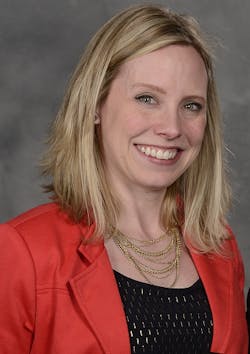Grant the aftermarket the right to repair recalls
In December 2016, the Federal Trade Commission made it easier for dealerships to sell used vehicles – even those considered “certified pre-owned” -- that still have open recalls, so long as that information was disclosed to the buyer before the purchase. (For more on this story, read the New York Times article, “Buyer Beware: ‘Certified used Cars May Still Be Under Recall.")
While many automakers have currently opted to not sell these vehicles (with the exception of Ford), places like CarMax can now also legally sell certified used vehicles with open recalls. CarMax isn’t even a certified dealer to make these repairs, leaving it up to the consumer to get the recall fixed elsewhere.
When the National Highway Traffic Safety Administration (NHTSA) issues a widespread vehicle recall – like the Takata airbag safety recall affecting more than 42 million vehicles, and some 64 million airbags, according to Consumer Reports – it’s a matter of consumer safety to get those vehicles fixed.
NHTSA reports there are more than 50 million vehicles affected by vehicle recalls annually. On average, dealerships complete repairs on 75 percent of cars covered by a recall in 18 months, while the remaining quarter go unrepaired. Ignoring the fact that 25 percent of vehicles on the road have an open recall, this also means that it takes a year and a half for some repairs to be completed.
If it’s up to the consumer to get their vehicle fixed, shouldn’t they have the choice on where to have that work completed?
From a recent ASA members survey, conducted by AutoInc., one respondent said: “Most recall repairs are very simple and easy to do. Manufacturers should open the gate [and] let others do recall repairs. I live in an area where it can be over 100 miles to a dealership for a recall. Not a good situation at all.”
As an aftermarket shop, you do have the ability to alert your customer to a recall, but they still need to take that vehicle into the dealership to have the hardware or software updated. But, will aftermarket shops eventually play a role in fixing vehicle recalls?
Our industry could look to the heavy duty aftermarket as a guide; independent heavy duty aftermarket shops who are authorized dealers – for OEs such as Paccar, Allison, and the like have certified technicians who can complete repairs on these types of vehicles.
While these heavy duty shops only address maintenance and warranty work, both types of businesses – heavy duty and automotive – could benefit from being a certified vehicle recall repair facility.
As an extension of Right to Repair, it would also benefit the OEs to allow consumers this access, for better customer service and a positive view of their brand.
About the Author
Erica Schueller
Editorial Director | Commercial Vehicle Group
Erica Schueller is the Editorial Director of the Endeavor Commercial Vehicle Group. The commercial vehicle group includes the following brands: American Trucker, Bulk Transporter, Fleet Maintenance, FleetOwner, Refrigerated Transporter, and Trailer/Body Builders brands.
An award-winning journalist, Schueller has reported and written about the vehicle maintenance and repair industry her entire career. She has received accolades for her reporting and editing in the commercial and automotive vehicle fields by the Truck Writers of North America (TWNA), the International Automotive Media Competition (IAMC), the Folio: Eddie & Ozzie Awards and the American Society of Business Publication Editors (ASBPE) Azbee Awards.
Schueller has received recognition among her publishing industry peers as a recipient of the 2014 Folio Top Women in Media Rising Stars award, acknowledging her accomplishments of digital content management and assistance with improving the print and digital products in the Vehicle Repair Group. She was also named one Women in Trucking’s 2018 Top Women in Transportation to Watch.
She is an active member of a number of industry groups, including the American Trucking Associations' (ATA) Technology & Maintenance Council (TMC), the Auto Care Association's Young Auto Care Networking Group, GenNext, and Women in Trucking.
In December 2018, Schueller graduated at the top of her class from the Waukesha County Technical College's 10-week professional truck driving program, earning her Class A commercial driver's license (CDL).
She has worked in the vehicle repair and maintenance industry since 2008.

